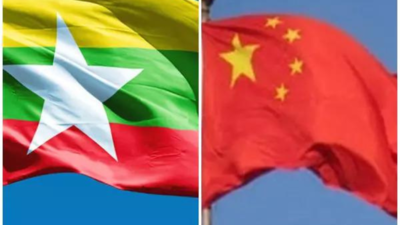Myanmar’s exports to China, which account for a significant portion of the country’s total exports, are facing severe disruptions due to the ongoing armed conflict in northern Shan State. The conflict has led to the closure of crucial border crossings, such as Muse and Chin She Haw, which were once bustling hubs of trade activity. As a result, traders are now forced to rely on the Mongla gateway, controlled by the National Democratic Alliance Army (NDAA), an ethnic armed group. This shift has resulted in several challenges, including:
- Lengthy and Dangerous Journeys: The Mongla route is significantly longer and more treacherous than the traditional routes, forcing traders to endure extended travel times and increased security risks.
- Higher Taxes: The NDAA imposes higher taxes on goods passing through their territory, further adding to the financial burden on traders.
- Uncertainty and Delays: The ongoing conflict and the unpredictable nature of the situation in northern Shan State have created an environment of uncertainty and delays, making it difficult for businesses to plan and execute their operations effectively.
The disruptions to Myanmar’s exports to China have had a ripple effect throughout the country’s economy. Businesses that rely on these exports have seen their revenues decline, leading to job losses and economic hardship. The situation has also raised concerns about Myanmar’s ability to meet its export commitments and maintain its economic stability.
Addressing the challenges posed by the conflict in northern Shan State is crucial for the recovery and growth of Myanmar’s economy. Finding a peaceful resolution to the conflict and reopening the traditional border crossings would be essential steps in restoring normalcy and facilitating trade between Myanmar and China. Additionally, exploring alternative transport routes and establishing clear trade agreements with the NDAA could help alleviate some of the immediate challenges faced by traders.
